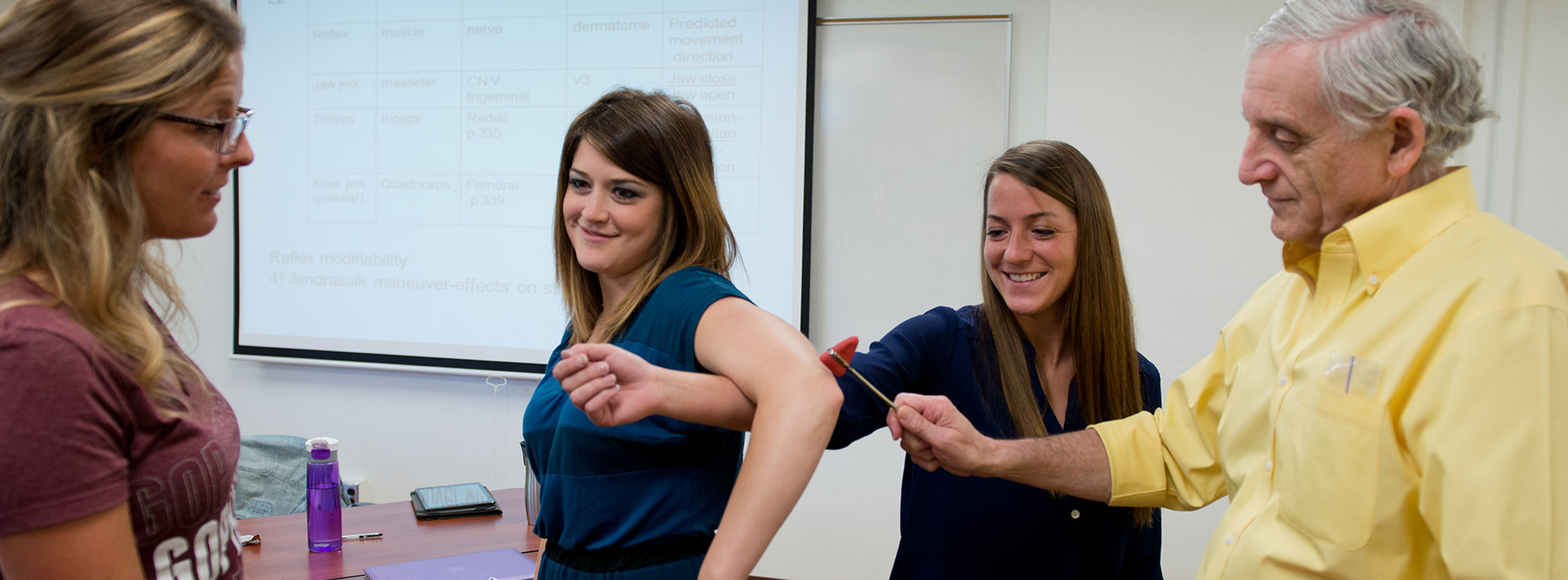The OTD is a 37 month, 116-credit graduate-level professional program completed over the course of nine semesters. Graduates receive a professional Doctor of Occupational Therapy degree.
Learning Objectives of the Program
Evaluate Models, Policies and Systems
The student will:
Evaluate models, policies and systems in settings where occupational therapy services are emerging or delivered.
With the goal of learning to:
- Appraise current and future directions for health care, education, and social service systems that guide practice and service.
- Critique health, education, employment, academic and community models that structure emerging OT services.
- Create innovative practice in emerging OT settings.
- Analyze policies and develop, formulate procedures for effective OT services.
Evaluate Evidence
The student will:
Evaluate evidence to drive innovative practice for individuals, communities, and populations.
With the goal of learning to:
- Apply ethical guidelines to complex practice situations. Identify a problem for a population-, community- or individual- level practice related problem or question.
- Appraise evidence relevant to the question or problem and reframe their questions accordingly.
- Formulate a research proposal around their practice-related problem or question.
Achieve Proficiency
The student will:
Achieve proficiency in one of the following areas of advanced practice: clinical practice, research, administration, leadership, program and policy development, advocacy, education, or theory development.
With the goal of learning to:
- Evaluate outcome(s) of their proposed approach.
- Compare and contrast 3-4 potential specialty practice areas.
- Investigate knowledge, skills and attitudes needed to possess emerging expertise in specialty area.
- Select specialty [advanced] practice area.
- Develop capstone project in selected specialty area.
- Formulate specific individualized capstone objectives and plan.
- Develop the knowledge, skills, and attitudes needed to possess emerging expertise in specialty [advanced] practice area.
Inspire, Empower and Lead Others
The student will:
Inspire, empower and lead others to be agents of beneficial change.
With the goal of learning to:
- Demonstrate emerging expertise through the application of knowledge, skills, and attitudes in specialty area.
- Understand leadership practices and how they impact behavior of individuals and groups in organizations. examples across multiple contexts.
